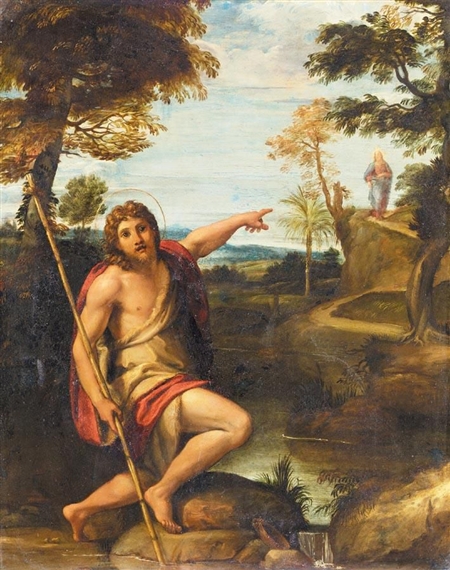II SUNDAY IN ORDINARY TIME - John 1:29-34
Immediately after his introduction to the Gospel, where Jesus is presented as the Word Incarnate, the writer of the fourth gospel presents the testimony of John the Baptist about Jesus. It is an extraordinary testimony, spoken out very clearly, and John reports on how revealing his encounter with Jesus was. Recognising Jesus, John recognised his own mission and the meaning of his life: “It was for Him to manifest Himself to Israel that I came to baptize in water”. Recognising his mission, in all humility, John accepted his own position with its limitations. In spite fo coming after him, Jesus ranks before him because he already existed before him, that is, he existed before the times. In his encounter with Jesus, John became aware that Jesus was divine and therefore eternal. We may ask what led Joh to this conclusion. He saw the Holy Spirit coming down like a dove "and remain on him". Therefore, he recognised him as the Anointed One (Christ, Messiah), the one who comes to baptize in the Holy Spirit. And he made the conclusion: "Now, I saw and I testify that He is the Son of God". Knowing that he is the Son of God, he presented him as "the Lamb of God, who takes away the sin of the world". We have become so used to this title that we are not aware of its meaning. Certainly, for the Jews, the title "lamb of God" had very deep connotations, immediately bringing to mind the lamb of the Easter sacrifice. By giving Jesus the title of “lamb of God”, John announces his death, offered as a paschal sacrifice. As Paul would say. “Christ, our Passover, was sacrificed” (1 Cor 5: 7). He will shed his blood for the remission of sins (Mt 26,28).








